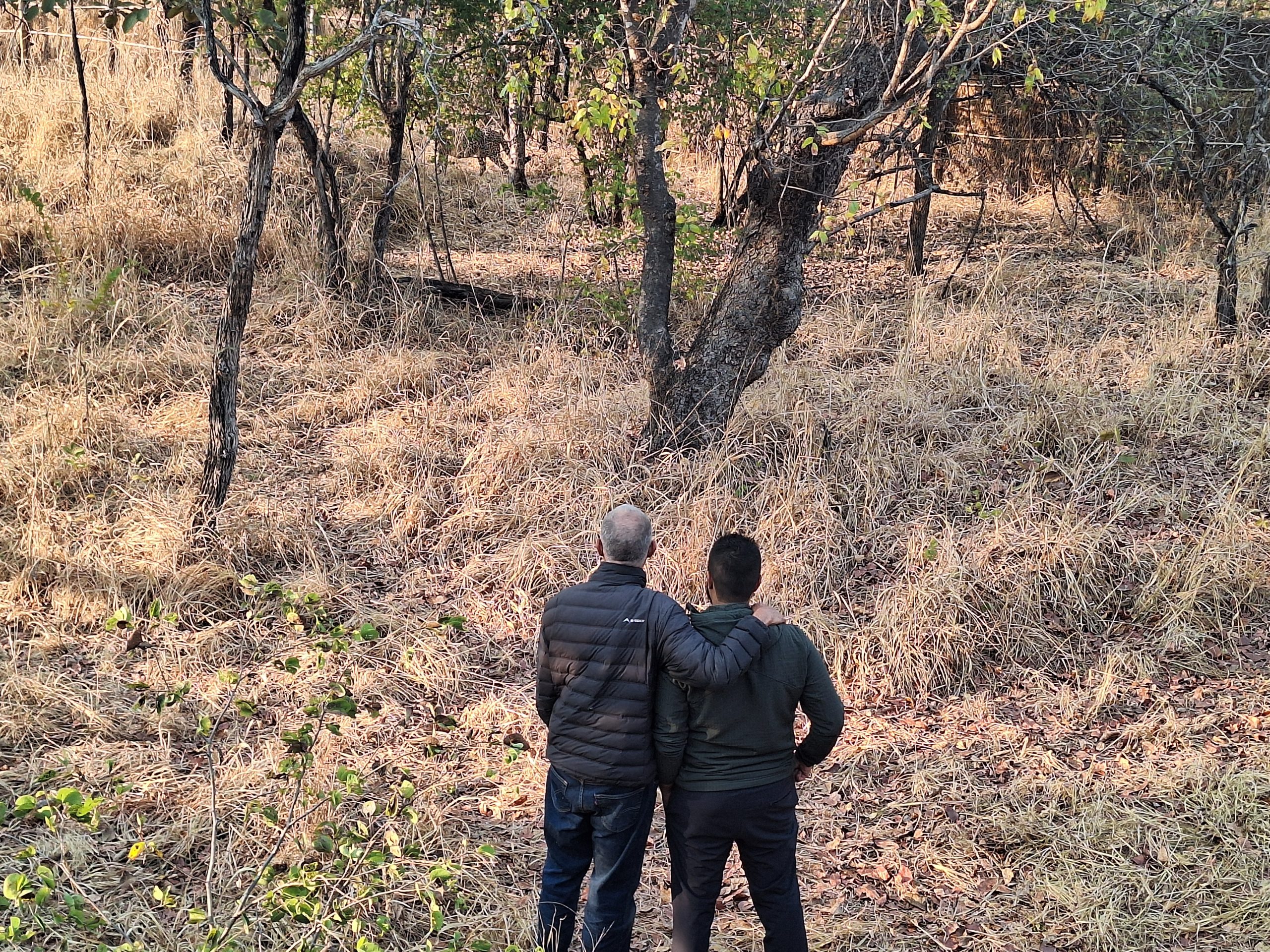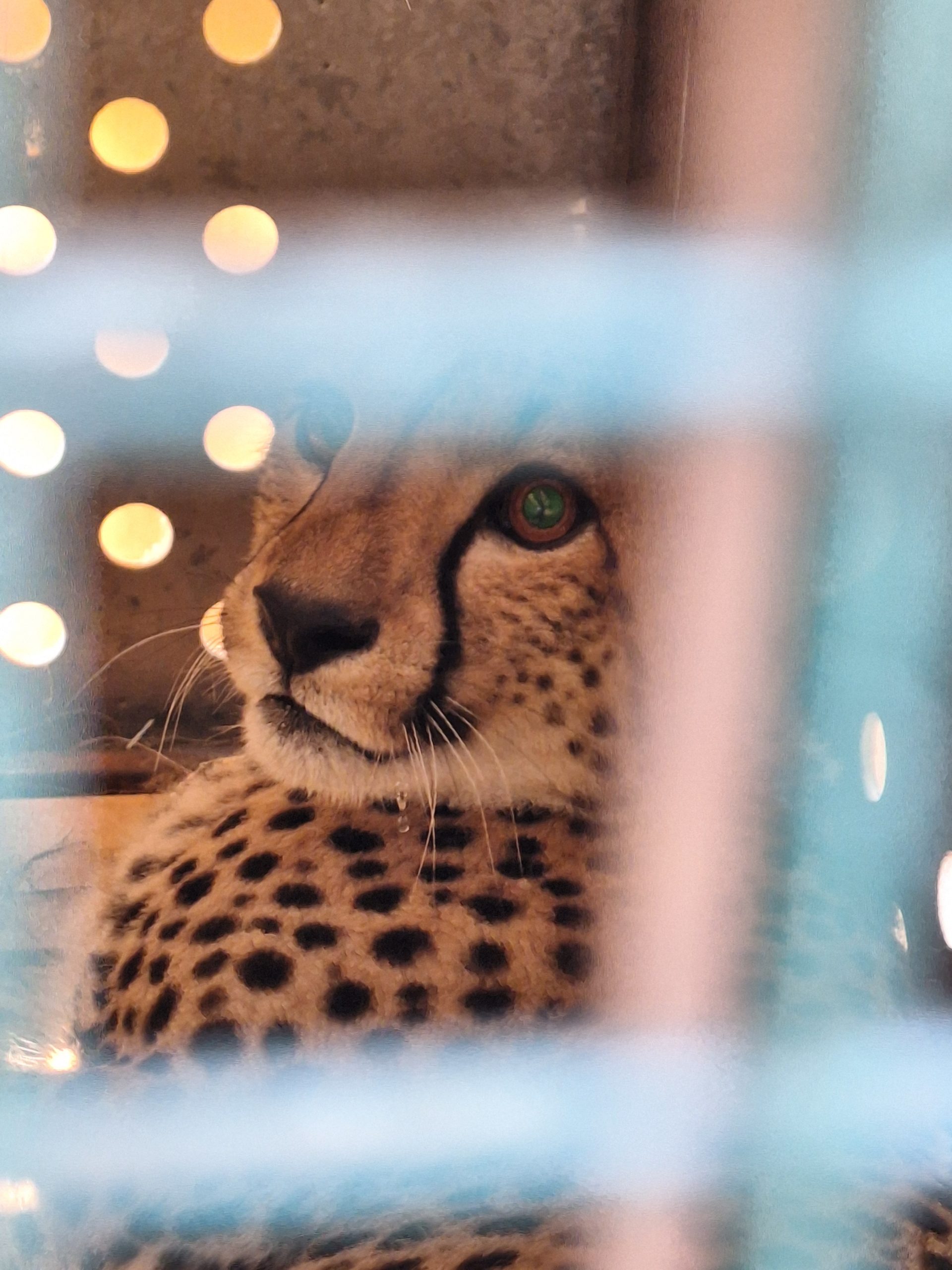
In August 2024, MCC Aviation was part of an extraordinary journey; a mission which brought together several conservation organisations, several wildlife experts and the entire team at MCC. In a landmark initiative aimed at reviving cheetah populations in the wild, MCC played a crucial role in the relocation project at LoleLunga Game Ranch. In our first international animal relocation we managed to beat all odds at settling these magnificent creatures into their new home, in just one day.
This mission not only highlighted the intricate logistics and teamwork required to make such a significant project successful, but also underscored the importance of wildlife conservation, which MCC Aviation was proud to be a part of. We took a look at how the mission was rolled out and the impact it had on the MCC team.
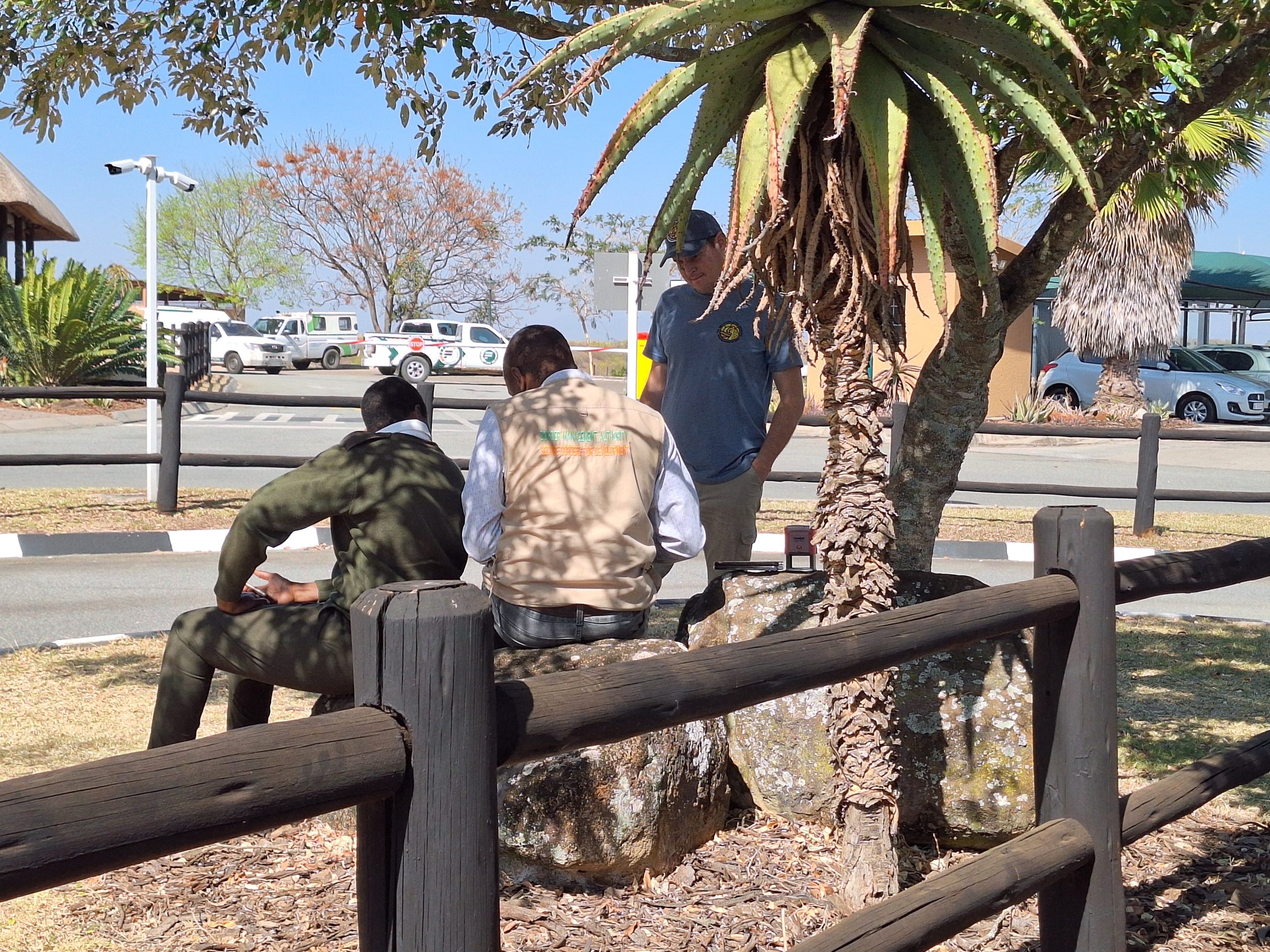
The Relocation Process: The Airborne Logistics
MCC Aviation was tasked with the delicate job of relocating five cheetahs by air to their new home at LoleLunga, a process that involved meticulous planning and execution. The project required a tailored approach based on the specific aircraft type, ensuring that every aspect, from aircraft capabilities to cargo requirements, was optimised for the safe transit of these magnificent animals.
Key Responsibilities Included:
- Planning According to Aircraft Type: Different aircraft have varying capabilities, and MCC ensured that their operations were fully aligned with the specific aircraft selected for the mission.
- Runway Suitability Assessment: Before departure, MCC Operations assessed any potential runways for their surface type and length, confirming that the chosen runway at LoleLunga would safely accommodate the aircraft.
- Crate Specifications: A critical part of the operation was determining the precise dimensions and weights of the transport crates. These crates were specially designed to provide ample space for the cheetahs to stand and move without risking injury during transit.
- Coordination with Airports: MCC worked closely with airports along the route to arrange for fuel stops and ensure smooth customs clearance, a vital part of the journey that required careful planning.
- Flight Clearance: Securing permission to fly over Botswana, Zimbabwe, and Zambia was essential, and MCC navigated the necessary bureaucratic channels to obtain the required clearances for the proposed route.
- Day-of-Flight Operations: On the day of the flight, the MCC crew oversaw the transit of the team and cheetahs through Kruger International Airport. They meticulously managed the loading of the aircraft within structural limits while considering the well-being of the cheetahs.
- Real-Time Communication: While the pilots operated on the front line, the operations and management team at base were responsible for keeping all contracting parties updated about movements and requirements as the day evolved.
For this extraordinary operation, MCC Aviation utilised a Caravan aircraft, selected for its ideal balance of capacity and suitability. The operation required not only the transportation of five cheetahs but also three passengers: a veterinarian, a cheetah specialist, and a photographer.
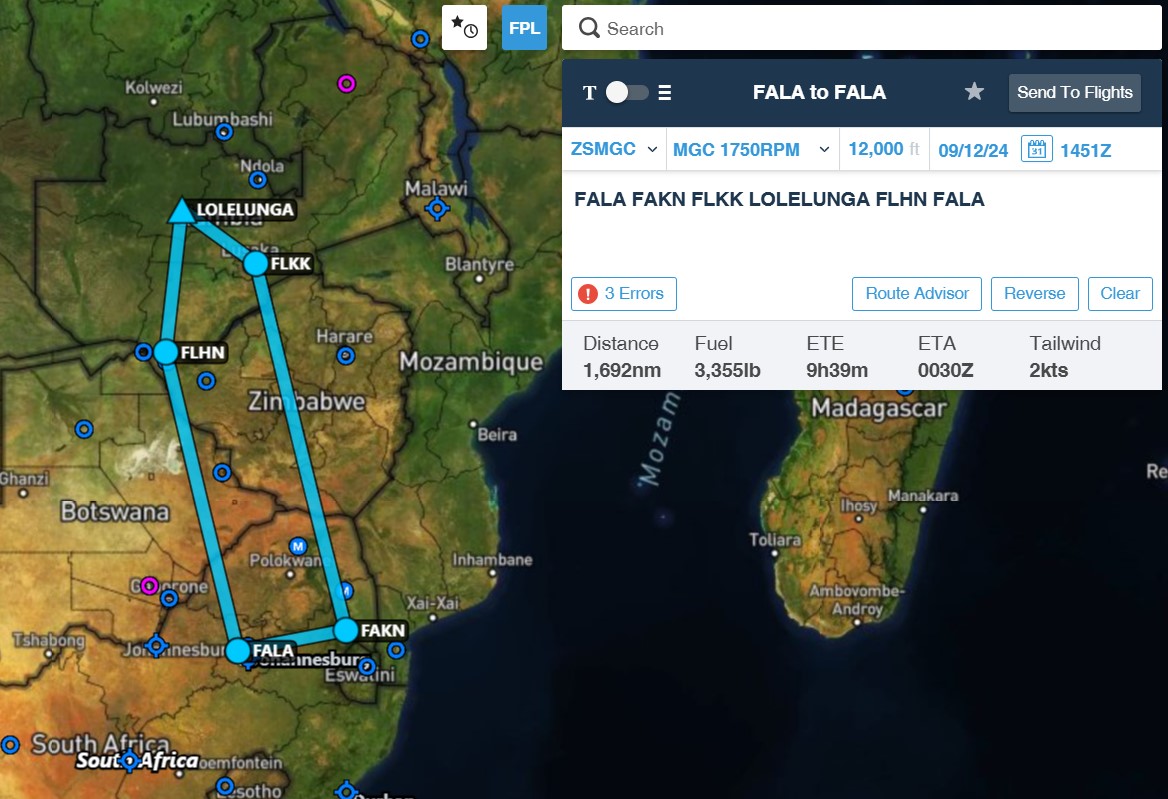
A Minefield of Hurdles: Overcoming the Logistical Challenges
This successful relocation was a collaborative effort spearheaded by the Metapopulation Initiative (TMI), funded by Lolelunga Safaris supported by WeWild Africa. These organisations worked diligently to secure all necessary permits from international and state organisations, including CITES (Convention on International Trade in Endangered Species), South African Department of Forestry, Fisheries and the Environment and the various provincial authorities and the Zambian government.
Once the final permit was issued there wasn’t much time left to effectively manage and organise the flying of the cheetahs to Zambia. It was at this point that TMI contacted MCC with a request for urgent assistance, as one of the import permits was about to expire. MCC had a ticking clock to achieve this feat.
A spanner was thrown into the works, however, as soon as the initial planning stages were completed. The team was informed that no fuel was available throughout Zambia due to shortages originating from the Beira fuel supply. This put the entire operation in jeopardy, but with the restrictions on the permits, the mission could not be further delayed .
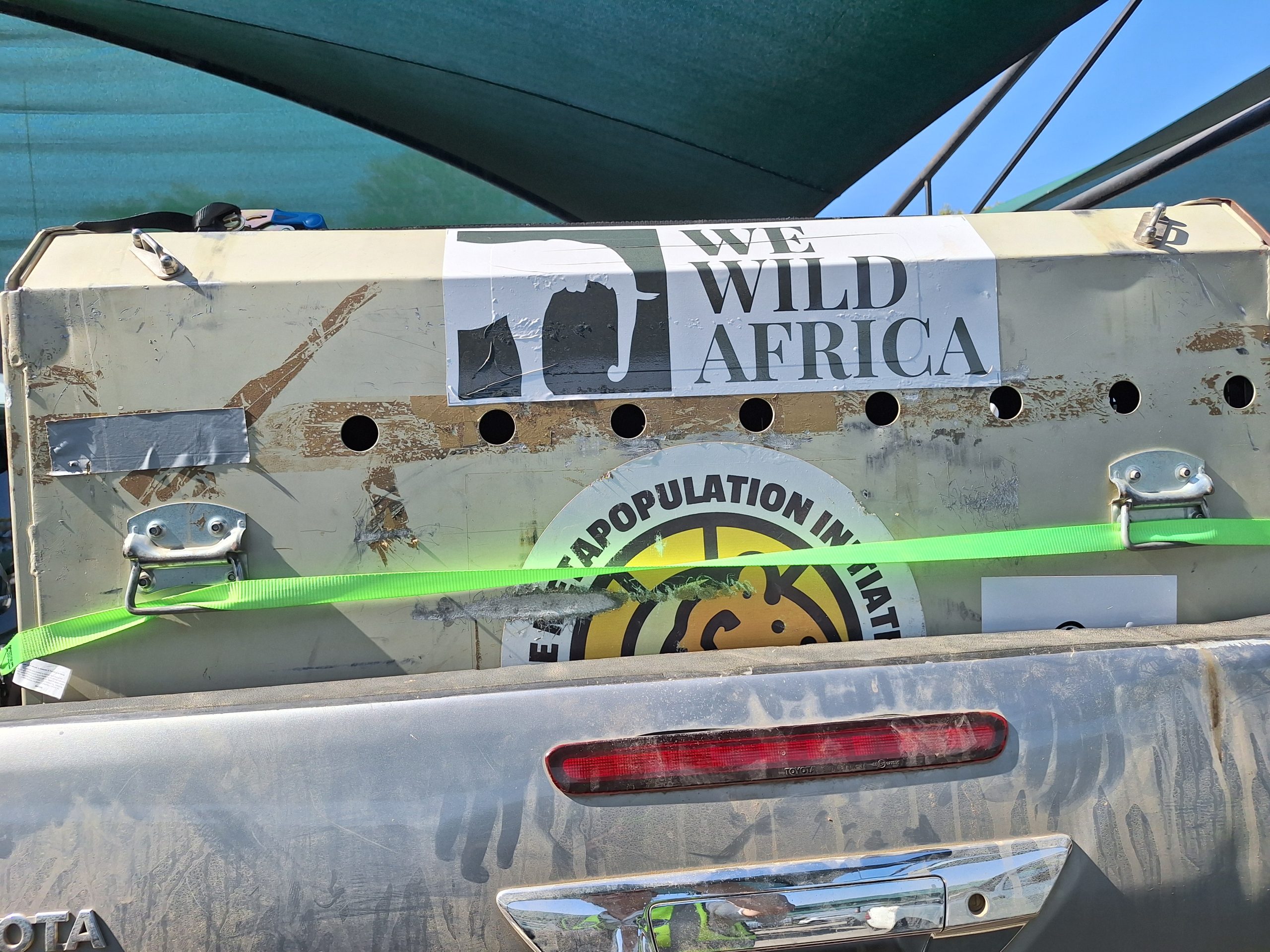
MCC turned to their Zambian aviation partner, Niner Juliet Logistics, for collaboration, and together with LoleLunga’s Managing Director, were able to pull off nothing short of a miracle by securing 1000L of fuel. This restricted amount of fuel, however, meant that MCC operations had to go back to the drawing board on planning.
The Zambian authorities required the cheetah to be quarantined at a CITES approved facility and this is where the Hoedspruit Endangered Species Centre (HESC) kindly stepped in and offered to quarantine the animals.
The cheetahs were then required to be transported from their donor reserves Kuzuko Lodge ( Eastern Cape) and Dinokeng Game Reserve (Gauteng) to HESC in Limpopo and cleared by
CITES officials (based at KMIA) before departing South Africa. They were therefore darted at the quarantine facility and loaded into their transport crates, and transferred by vehicle to Nelspruit.
Sticking to a tight time schedule when working with wildlife comes with obvious challenges and this resulted in a delayed take off time from Kruger International Airport. Although we were destined for an almost untouched part of Africa, we were subject to some classic African timing at KMIA itself. With some paperwork outstanding, our window to reach LoleLunga before sunset was fast closing. Having this delay meant that a very quick turnaround time at Kenneth Kaunda International Airport was necessary to make it to the final destination. Fortunately, with the help of the team from Niner Juliet Logistics, some local pilots heading to LoleLunga and the Zambian Customs Authorities all efforts were made to ensure the success of the mission.
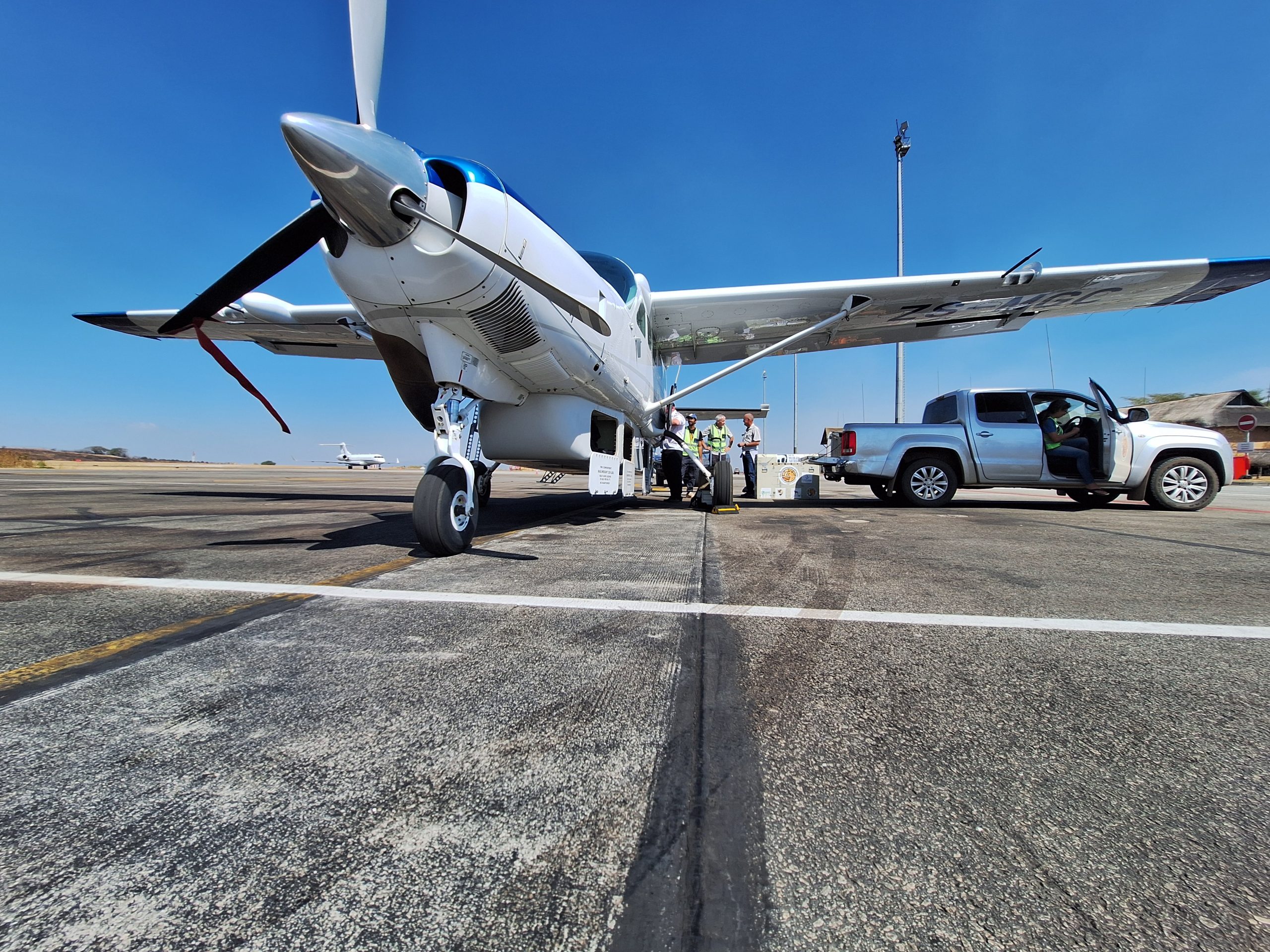
All Hands on Deck: Prioritising Safety and Comfort on Board
MCC Aviation prioritised the safety and well-being of the cheetahs throughout the entire process. MCC were fortunate to be under the guidance of the renowned Dr Peter Rogers and cheetah specialist Donovan De Swardt to ensure that the cheetahs endured as little as possible discomfort under the circumstances.
To ensure the safety of the cheetahs, they were kept awake during transport, avoiding the complications that could arise from anaesthesia. The transport crates were specifically engineered for wild cheetahs, sturdy enough to provide a safe environment while allowing enough room for the animals to stand and shift positions comfortably.
The crew worked diligently to reduce time on the ground, carefully regulating the cabin temperature to keep the cheetahs comfortable. Customs inspections were arranged at Kenneth Kaunda International Airport to take place on the aircraft, allowing for a seamless process that avoided unnecessary unloading of the animals and crates.
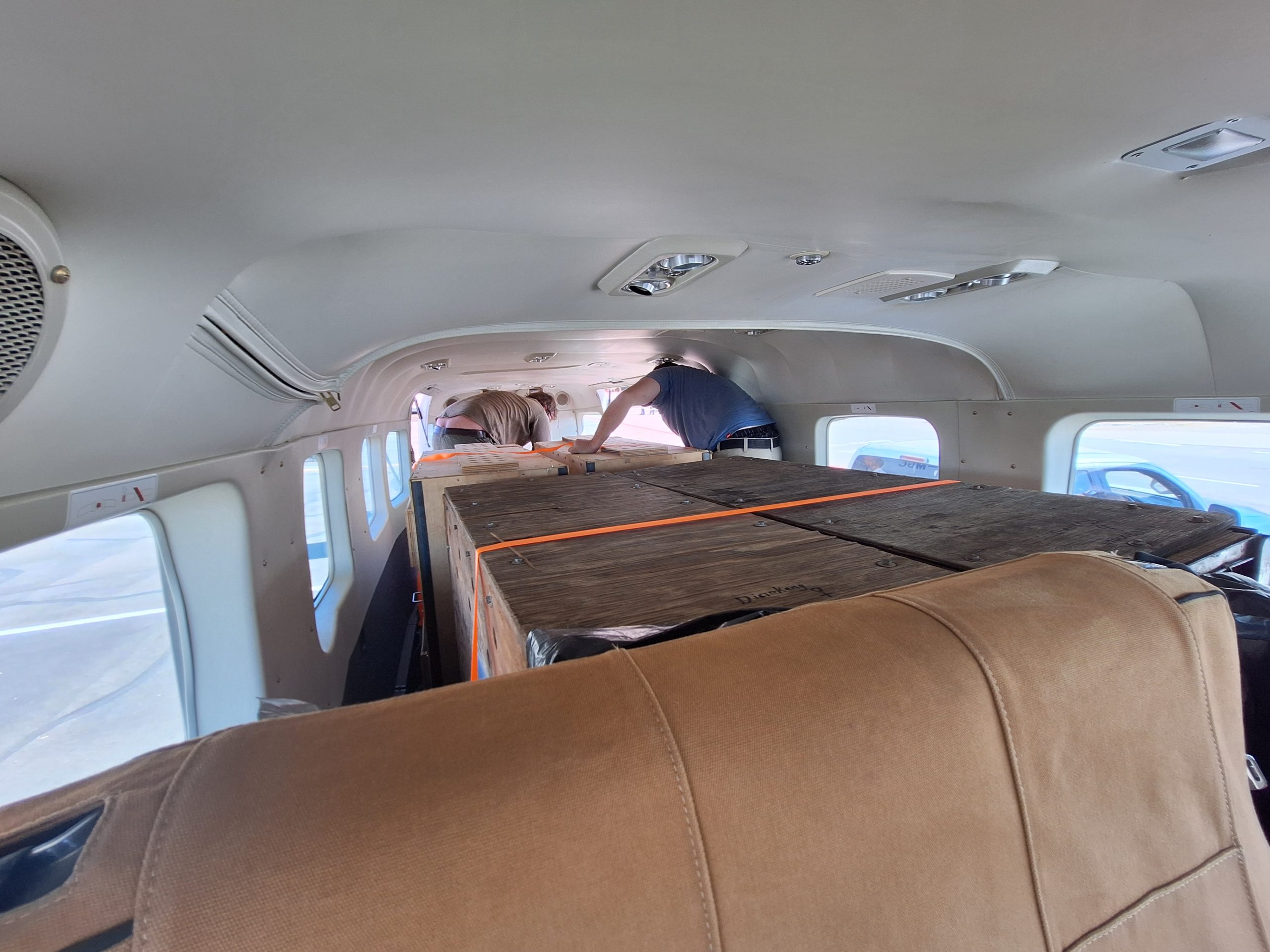
A Conservation Victory: Lessons Learned and Memorable Moments
MCC Aviation’s involvement in this high-profile wildlife relocation brought unforgettable moments and countless lessons that the crew soaked up. This was the first time MCC participated in an international animal relocation and the team were moved by the importance of the mission. They were most taken aback by how the significance of a project like this encourages and drives support and correlation between all parties across the board.
This type of combined action and support gives projects like these a fighting chance amidst all the hoops that need to be jumped to allow these creatures a fair chance to survive in nature.
The team reflected that one of the most poignant moments was the palpable sense of relief felt as the aircraft took off from Kenneth Kaunda International Airport, en route to LoleLunga.
“Although we still had to make up time to land before sunset, we knew we stood a chance.”
With minutes to spare before sunrise, MaGiC landed at LoleLunga, and the team was greeted with gratitude from an elated and relieved team. The release of the cheetahs, who had spent the night safely in their transport crates, marked a profound moment for all involved. The cheetahs were finally free in a habitat that hadn’t seen their kind in over a century.
“Nothing could compare to the feeling of peace which was felt by all who were privileged to witness this momentous occasion”.
A Look to the Future: MCC’s Role in Conservation Efforts
Looking forward, MCC Aviation is committed to supporting future wildlife conservation projects, recognising the inherent complexities and costs associated with such endeavours. TMI and WeWild Africa have plans for more cross-border relocations, and MCC aims to provide affordable logistics solutions that alleviate some of the burdens on conservation organisations.
MCC Aviation has established itself as a vital partner in these efforts, demonstrating the importance of expertise in navigating international cargo logistics, which is critical to the success of such projects.
“The biggest threat to wildlife globally is habitat loss. Human population growth is rapidly reducing the available habitat for wildlife to persist. For some species, like cheetahs, this means human mediated interventions are necessary to conserve them. Spaces between these wildlife refuges are becoming larger, which is the ultimate reason for big relocations such as this one. We consider it our social and corporate responsibility to do what we can to get involved in such efforts.”
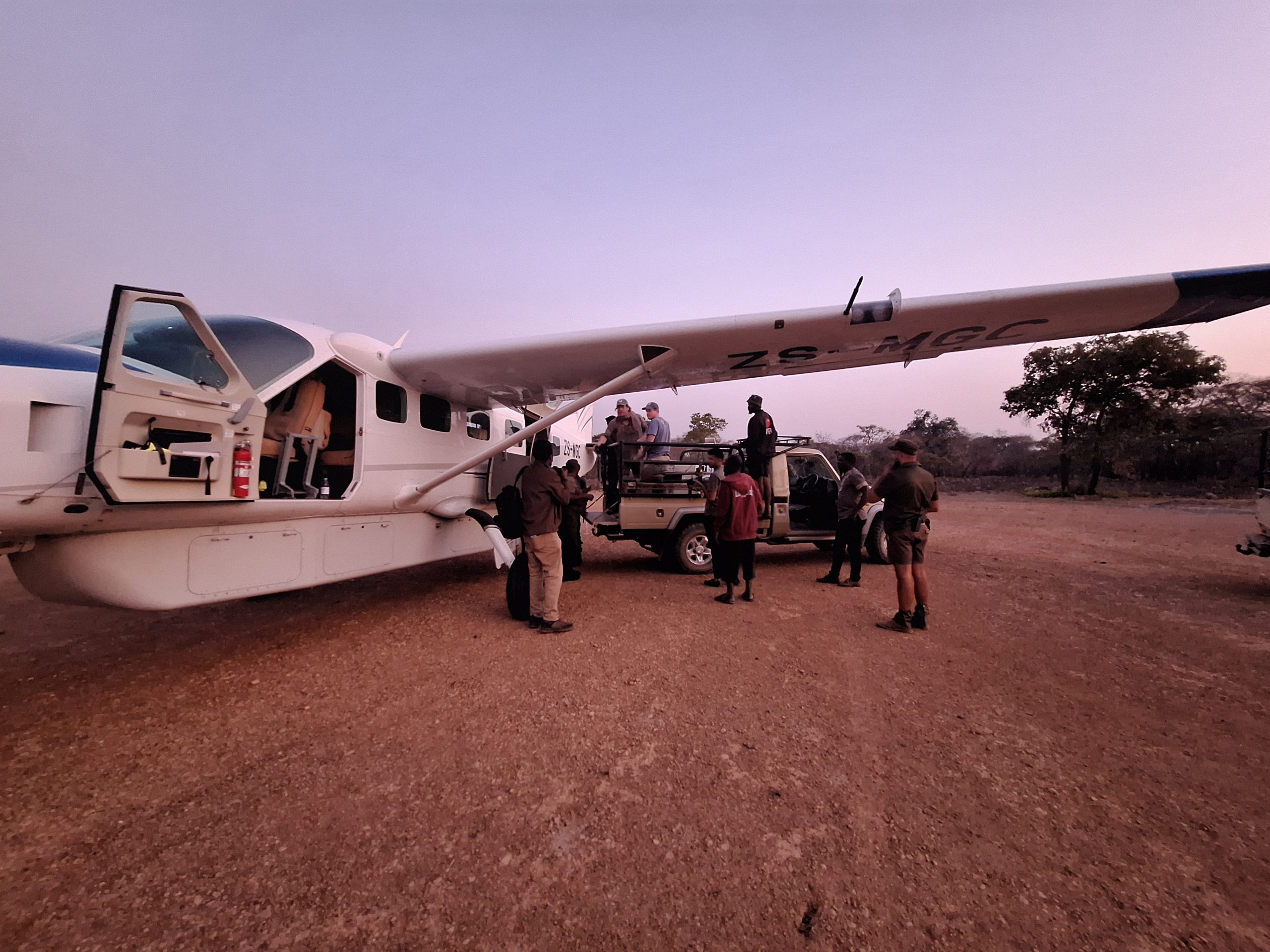
The Bottom Line
MCC Aviation’s role in the cheetah reintroduction at LoleLunga Game Ranch stands as a testament to the power of collaboration, dedication, and logistical expertise in wildlife conservation. By bridging the gap between logistics and conservation, MCC Aviation is helping to ensure that these magnificent creatures have a fighting chance to thrive in their natural habitats once more.
“Success is not final, failure is not fatal, it’s the courage to continue that counts. In the end, we successfully relocated five wild cheetahs many thousands of kilometres across the continent, in just one day!” MCC Aviation.
